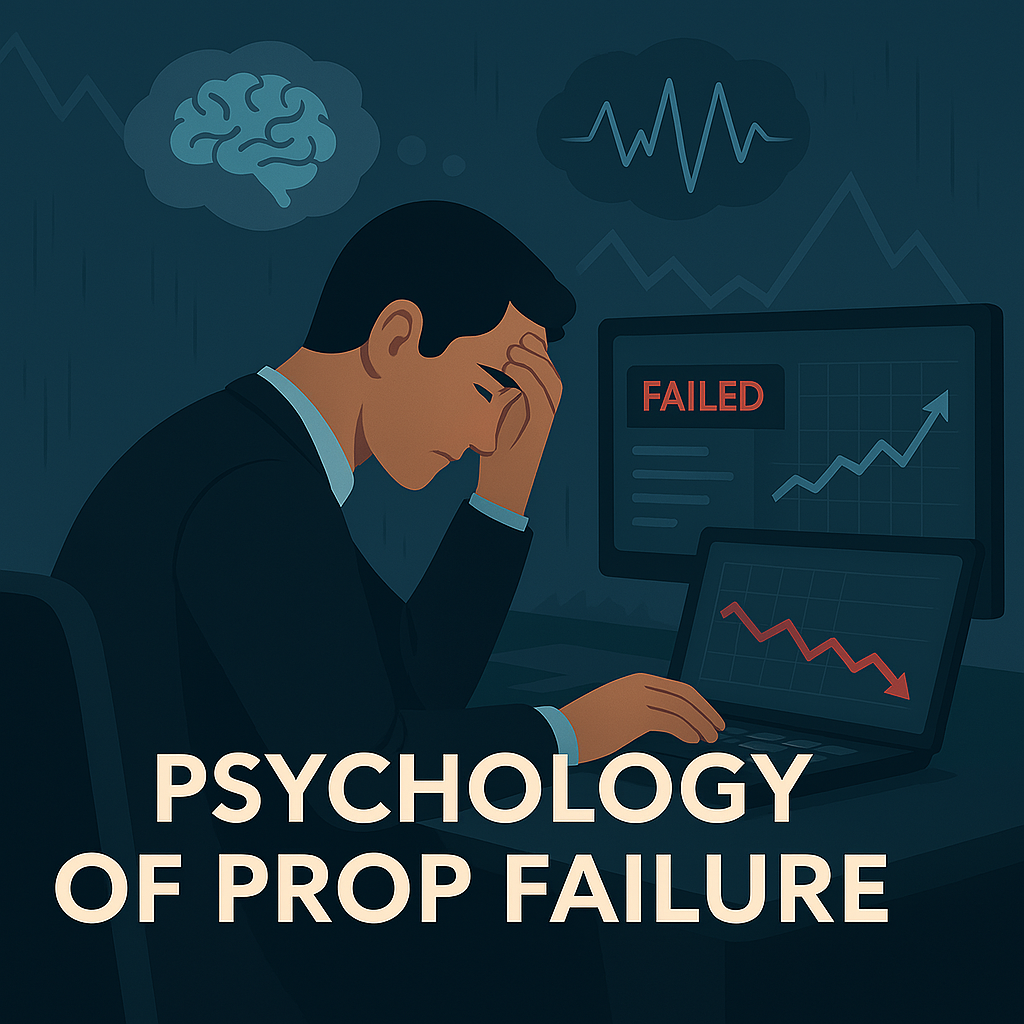Psychology of Prop Failure: Why Most Traders Fail Prop Challenges
Understanding the psychology of prop failure is the first step toward overcoming the mental traps that cause most traders to fall short in proprietary trading challenges. While technical skills are important, the majority of challenge failures come down to emotional decisions, mindset issues, and a lack of discipline—not strategy alone.
In this article, we’ll break down the most common psychological reasons traders fail prop firm evaluations and offer practical tips to build the mental edge needed for long-term success.
The Real Reasons Behind Prop Challenge Failures
Contrary to popular belief, poor strategy is not the main reason traders fail. More often, it’s the trader’s response to pressure, risk, and volatility that leads to account breaches. By examining the psychology of prop failure, patterns begin to emerge.
Some of the most frequent psychological challenges include:
-
Overtrading after a loss
-
Fear of missing out (FOMO) on volatile setups
-
Revenge trading to recover losses
-
Impatience when profits come slowly
-
Emotional decision-making during drawdowns
These reactions are rarely tied to a lack of skill but stem from mental habits developed over time—especially in high-stakes environments like prop challenges.
Key Psychological Traps to Avoid
One of the top causes of challenge failure is performance anxiety. The pressure to pass within a limited time frame can lead even experienced traders to abandon their rules. This creates a cascade of poor decisions based on fear and frustration.
Another trap is unrealistic expectations. Many traders enter challenges expecting instant results or daily wins, leading to over-leveraging or chasing trades outside their edge. In reality, consistency and patience matter more than speed.
Larsa Capital emphasizes a disciplined and realistic trading environment, giving traders structured risk parameters and multiple asset options to align with their comfort zone. But even with a solid framework, mental resilience remains essential.
Managing Emotions During Prop Challenges
To succeed, traders must shift from reactive behavior to process-driven decisions. That requires a plan not just for market setups—but for emotional triggers.
Here’s how to build psychological control:
-
Set daily limits for both profit and loss
-
Walk away after a bad trade to reset mentally
-
Journal emotions along with trades to identify patterns
-
Stick to one strategy to reduce cognitive overload
-
Simulate the challenge environment in advance
This mental discipline builds consistency, reduces emotional interference, and prepares traders for real market conditions beyond the challenge.
The Psychology of Prop Failure Is Often Ignored
Far too many traders focus solely on charts and forget the human element behind the screen. But the psychology of prop failure plays a dominant role, and ignoring it can turn a promising strategy into a broken account.
Traders who embrace self-awareness, manage their emotions, and commit to a repeatable process dramatically improve their odds of success. Those who don’t often repeat the same mistakes in challenge after challenge.
Final Thoughts: Strengthen Your Mind, Not Just Your Strategy
To pass a prop firm evaluation, it’s not enough to have a profitable setup—you need emotional mastery and mental discipline. By understanding the psychology of prop failure, you unlock a deeper level of control over your performance.
Larsa Capital supports traders with the tools, structure, and flexibility to succeed—but the mindset is yours to develop. When you align strategy with psychology, the challenge becomes an opportunity rather than a threat.

